Are you feeling a bit overwhelmed by the process of getting your laboratory test results? You're not alone! Many people find themselves confused about what to expect and how to interpret these important health indicators. In this article, we'll break down everything you need to know about laboratory tests, from understanding the basics to what your results really mean, so grab a cup of coffee and let's dive in!
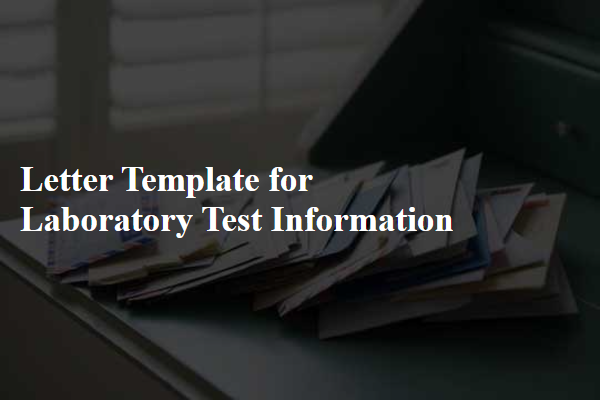
Patient Identification
Laboratory test results require accurate patient identification to ensure proper tracking and reporting. Each test sample must include unique identifiers, such as the patient's full name, date of birth (e.g., MM/DD/YYYY), and medical record number. In hospital settings, specific barcodes linked to electronic health records facilitate quick access to patient data and test results. Laboratory staff must double-check all documentation against these identifiers to minimize errors. Accurate patient identification is crucial for reliable diagnosis, treatment, and maintaining patient safety. In instances of multiple tests, including the test type (e.g., CBC, lipid panel) alongside timestamps for sample collection adds an extra layer of accountability.
Test Descriptions and Codes
Laboratory test information includes relevant details such as test descriptions, unique codes, and associated parameters. Tests like Complete Blood Count (CBC) evaluate various blood components, including red blood cells (RBCs) and white blood cells (WBCs), crucial for diagnosing infections or anemia. Codes such as CPT 85025, utilized for billing and tracking purposes, ensure standardized communication across healthcare providers. Another vital test, Comprehensive Metabolic Panel (CMP), assesses electrolyte levels, kidney function, and liver enzymes through tests like glucose and sodium, coded as CPT 80053. Understanding this information streamlines patient care, facilitates data sharing, and enhances diagnosis accuracy in clinical settings.
Pre-Test Instructions and Preparations
For laboratory tests, pre-test instructions are crucial to ensure accurate results. Fasting (typically 8 to 12 hours) may be required for tests like glucose or lipid panels. Hydration is important; patients should drink water unless otherwise specified. Certain medications (e.g., blood thinners) may need to be withheld. Specific preparations for tests like colonoscopy may include a dietary restriction and bowel cleansing with prescribed solutions. Patients should avoid alcohol consumption at least 24 hours prior to testing. Confirming the appointment details, including date and time, ensures timely arrival at the testing facility, such as a local clinic or hospital laboratory.
Sample Collection Method and Requirements
Sample collection methods play a crucial role in obtaining accurate laboratory test results. For blood tests, venipuncture is the standard method, requiring a sterile needle, collection tubes, and a tourniquet, with adherence to guidelines from the Clinical and Laboratory Standards Institute (CLSI). For urine tests, midstream clean-catch methods are recommended to ensure sample purity, involving the collection of urine after cleaning the genital area. Stool samples necessitate the use of specialized containers to prevent contamination, emphasizing the importance of prompt delivery to the laboratory within the recommended timeframe (typically within 2 hours). Furthermore, specific temperature requirements for sample storage and transport must be maintained, particularly for microbiological specimens, to preserve their viability and integrity for culturing and analysis.
Contact Information for Inquiries
Laboratory test information is crucial for patients and healthcare providers, ensuring accurate results and timely communication. Inquiries regarding test results or procedures can be directed to the laboratory's contact center, located at 123 Health Drive, Springfield. The laboratory operates Monday through Friday, from 8 AM to 5 PM. Patients can reach the center via telephone at (555) 123-4567 or through email at info@healthlab.com. For urgent questions, a dedicated hotline is available at (555) 987-6543, operating 24/7. Providing accurate contact information ensures that individuals can obtain the necessary details regarding their tests, enhancing the overall healthcare experience.

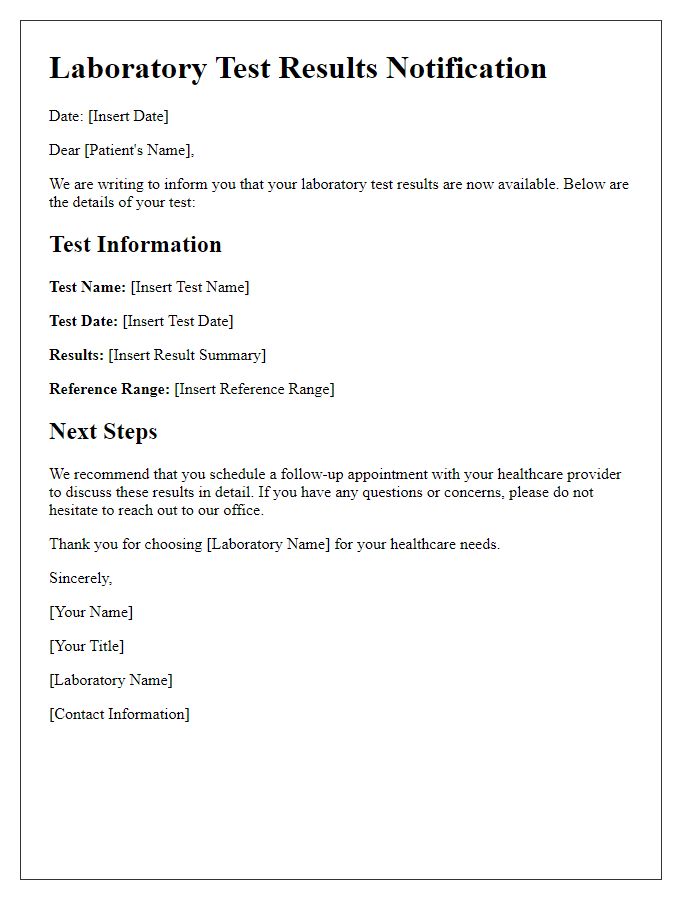
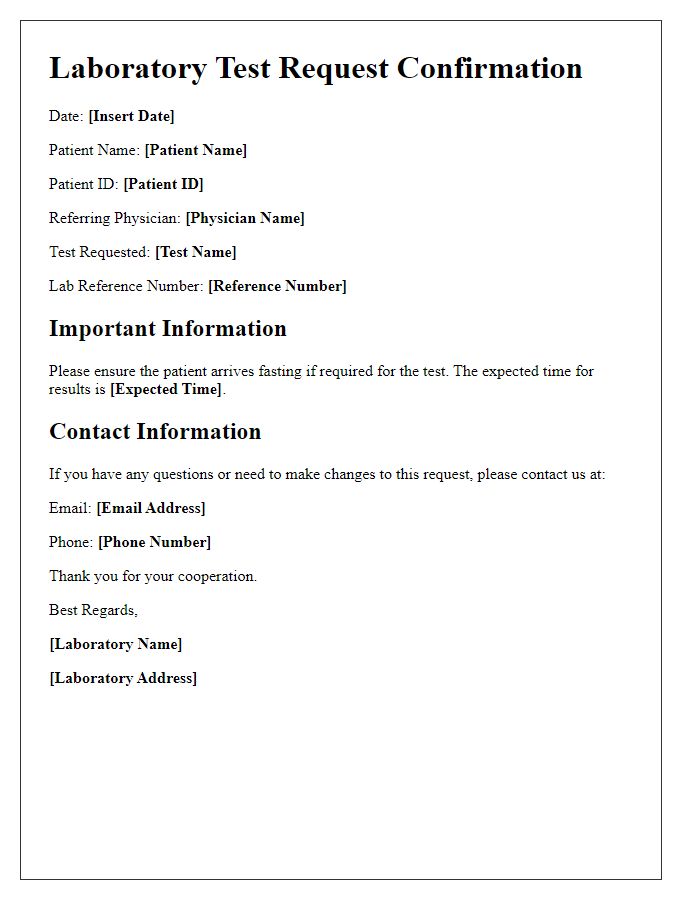
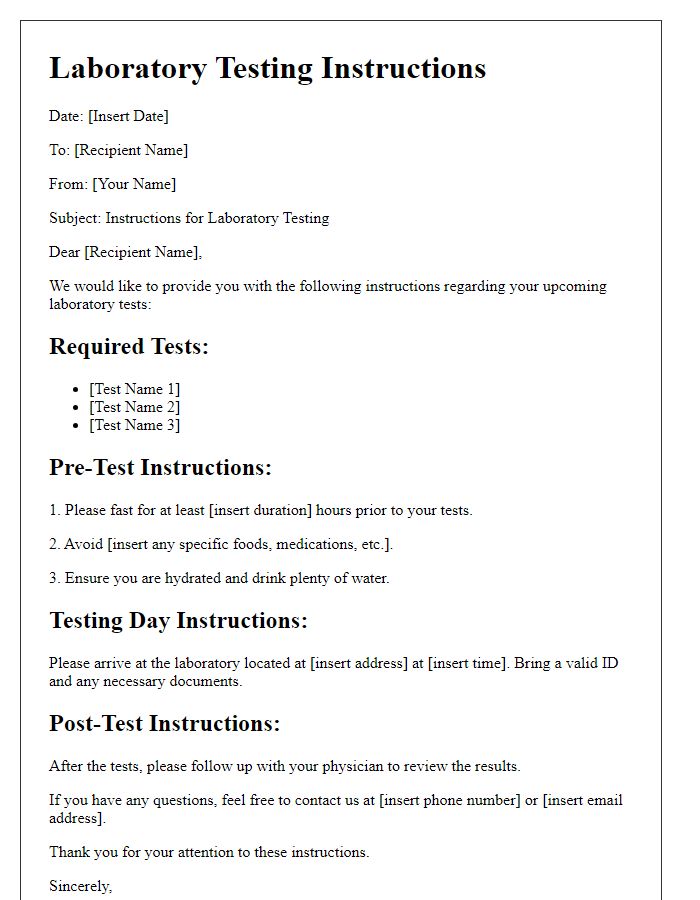
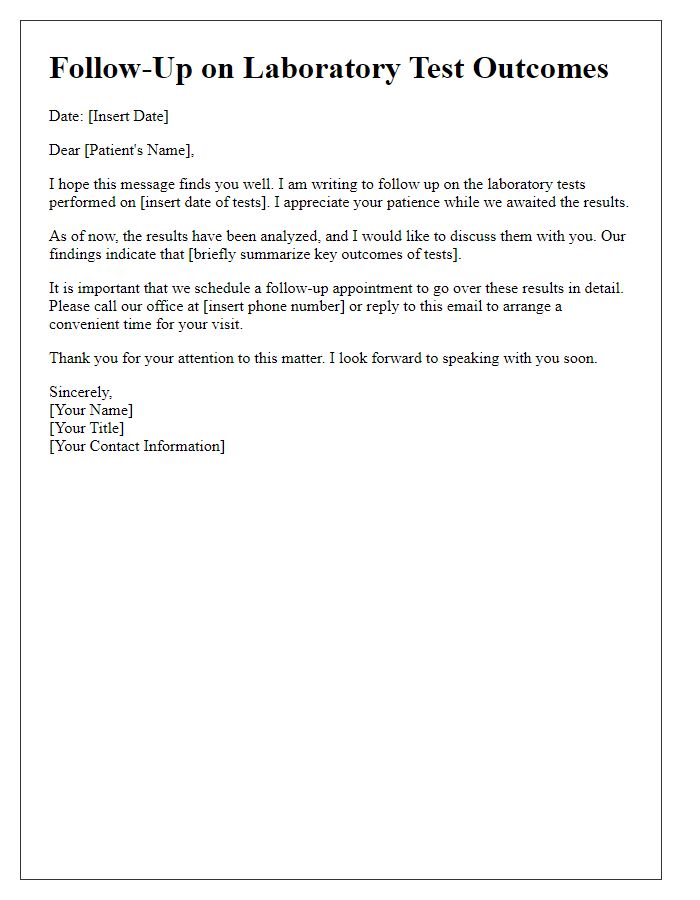
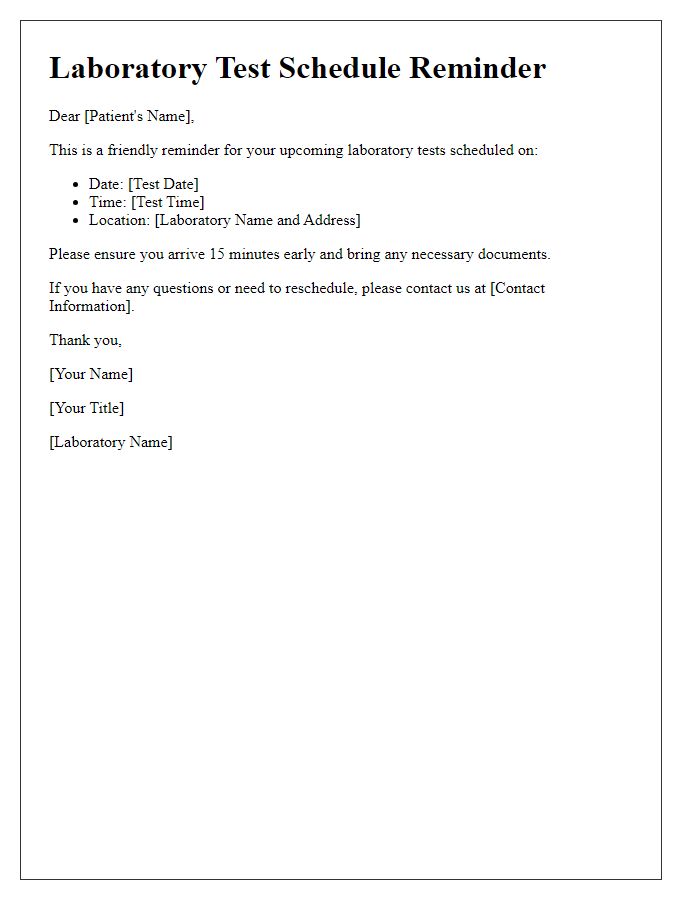
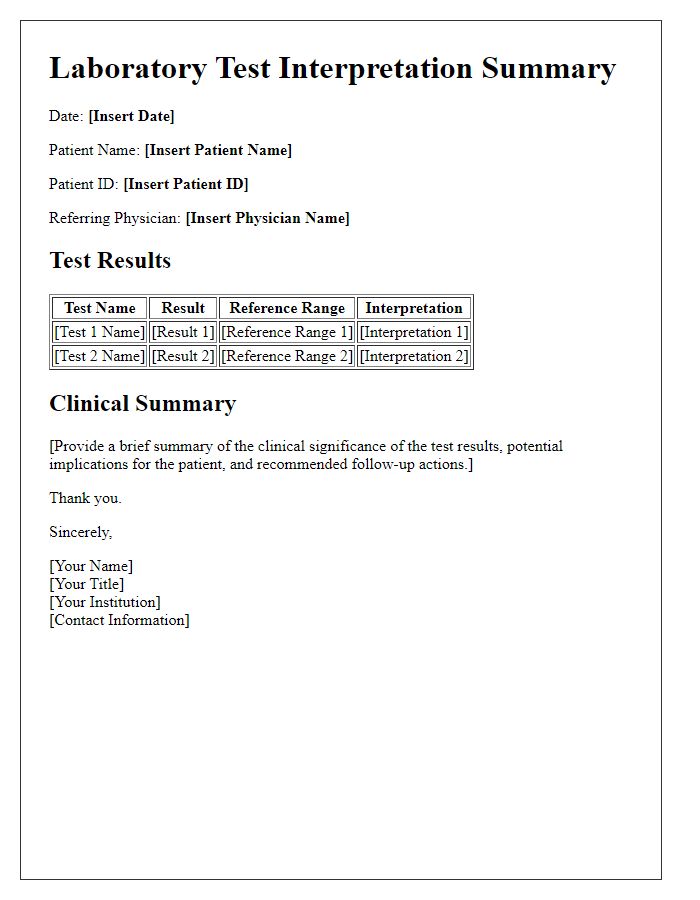
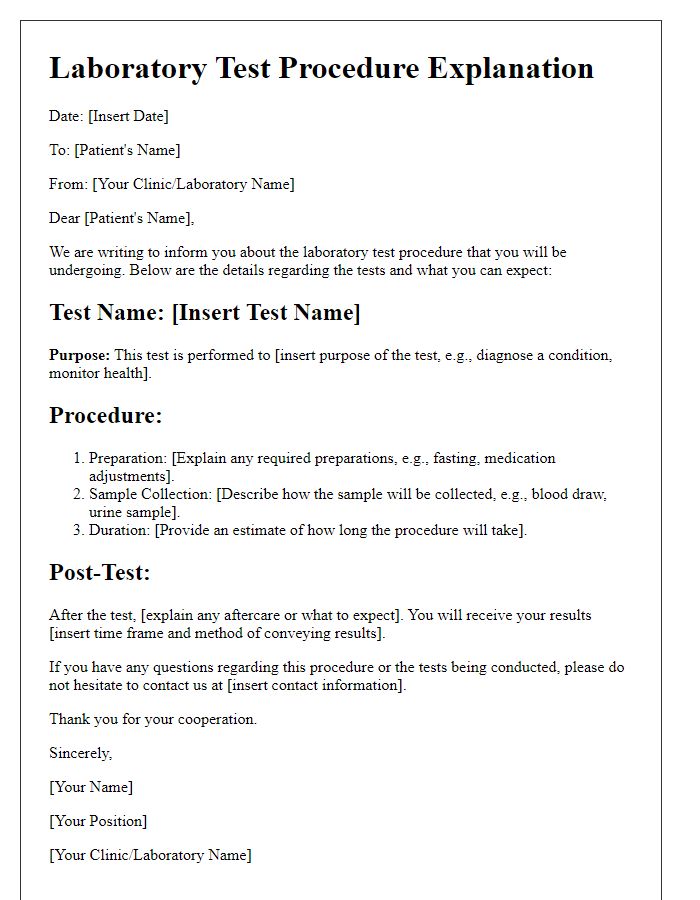
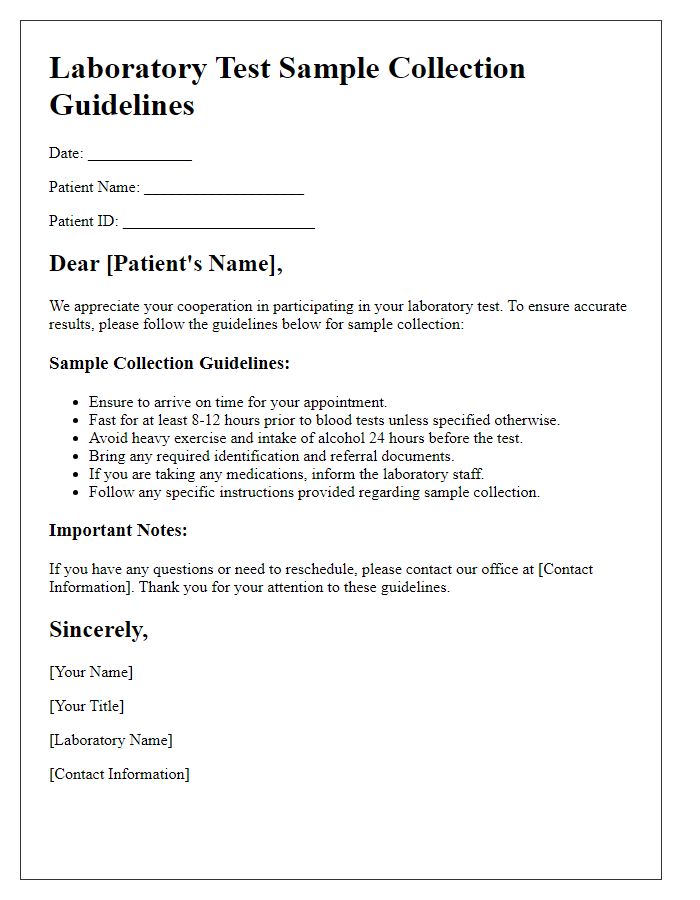
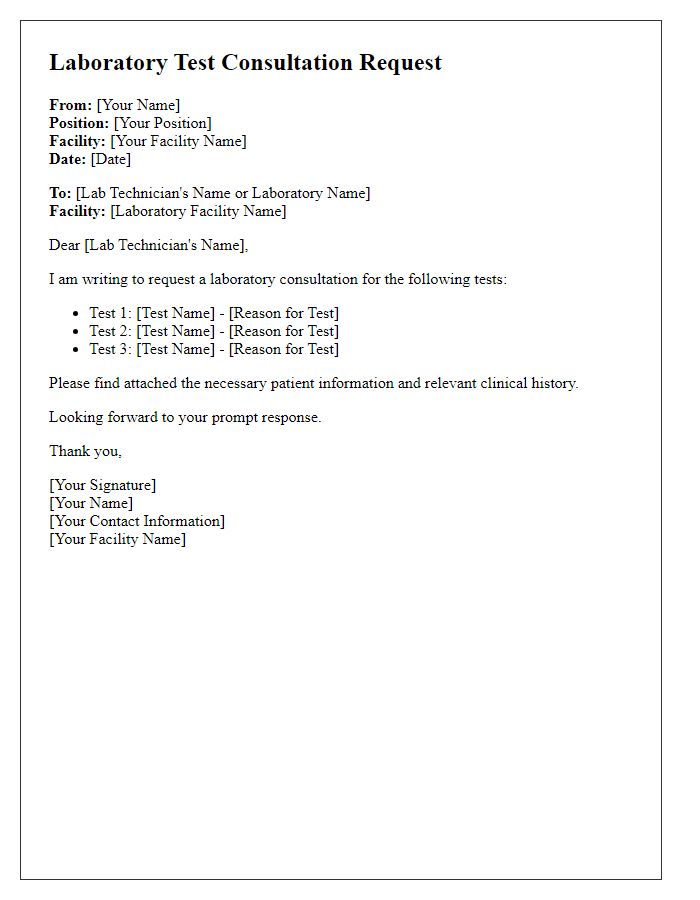
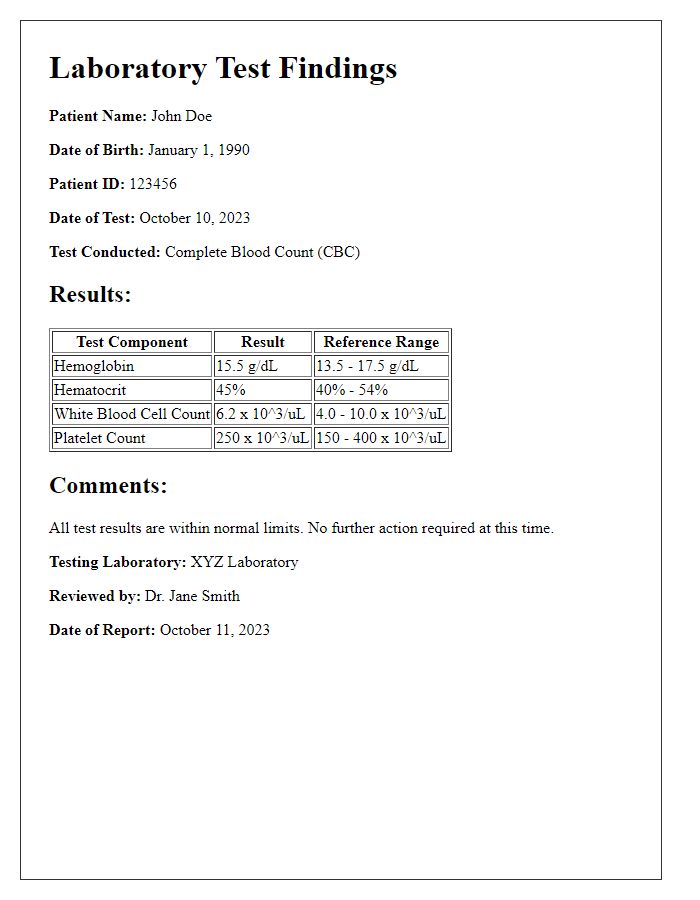


Comments